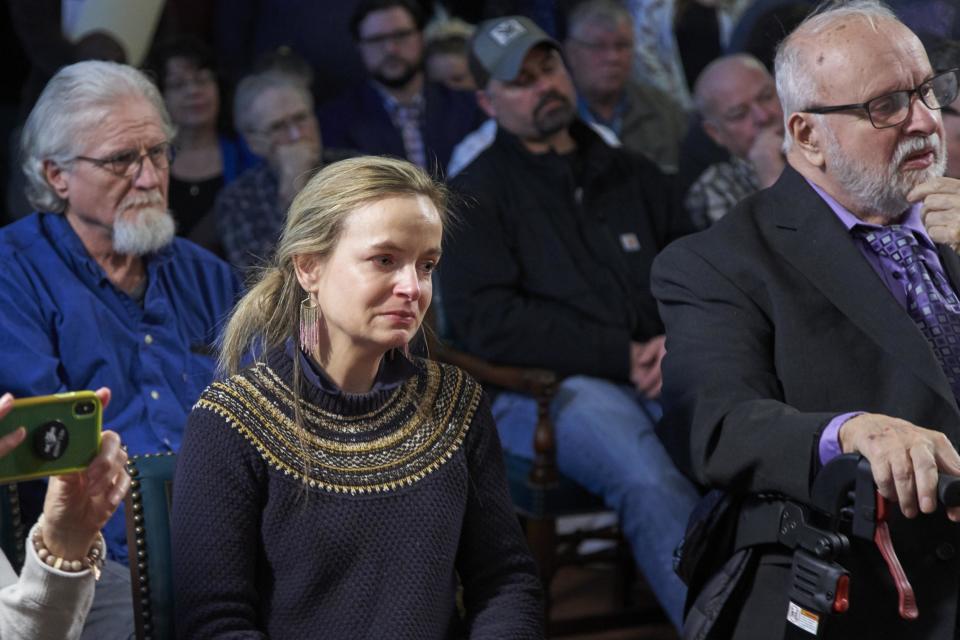Nebraska refuses pardon for girlfriend of 1950s killer who inspired films and Springsteen song

Nebraska authorities have refused to pardon the girlfriend of a killer whose infamous murder streak inspired several films and a Bruce Springsteen song, immortalising Charles Starkweather's eight-day killing spree in 1958.
The Nebraska Board of Pardons denied a petition from Caril Ann Fugate, who was 14 years old when she joined her then-19-year-old boyfriend Starkweather on his violent crusade as they evaded police.
Her appeal was ultimately rejected on Tuesday despite relatives of some of the victims lobbying in her defence, claiming that she was held at the mercy of Starkweather.
The state's governor, attorney general and secretary of state sit on the three-person board.
Between 1957 and 1958, Starkweather killed 11 people total in Nebraska and Wyoming, including Fugate's mother, stepfather and half-sister, who was only 2 years old when Starkweather shot her after the family refused that Fugate leave with him.
The ensuing violence and panic in Lincoln, Nebraska prompted law enforcement to comb the streets and perform a house-by-house search as the state summoned the National Guard to join the manhunt.
Starkwearther's murder streak inspired director Terrence Malick's 1973 film Badlands, starring Martin Sheen and Sissy Spacek, as well as 1993's Kalifornia, 1994's Natural Born Killers, and 2004's Starkweather, among other film and television adaptations of the Starkweather killings.
On his stark, seminal 1982 album Nebraska, songwriter Bruce Springsteen sang the title track from the perspective of Starkweather, incorporating a a line from a letter he wrote in jail to his parents, saying "I can't say that I'm sorry for the things that we done / At least for a little while, sir, me and her we had us some fun."
Starkweather was 20 years old when he was executed by electric chair in 1959.
Fugate, now 76 years old, was the youngest person to be convicted of first-degree murder in the US, for which she spent 17 years in prison before her parole in 1976. She also had applied for pardon in the 1990s. That also was rejected.
In her latest pardon application, which would restore her rights as a felon if approved, Fugate said that the perception that she had willingly joined the killings was "too much" to bear.
She said: "Receiving a pardon may somehow alleviate this terrible burden."

